Why I'll be swapping the Surface Pro 3 for the Surface 3 LTE
The Surface Pro 3 is an incredible device. Several of the Windows Central team own and use them, and it's one of those rare pieces of technology that's tough to criticise.
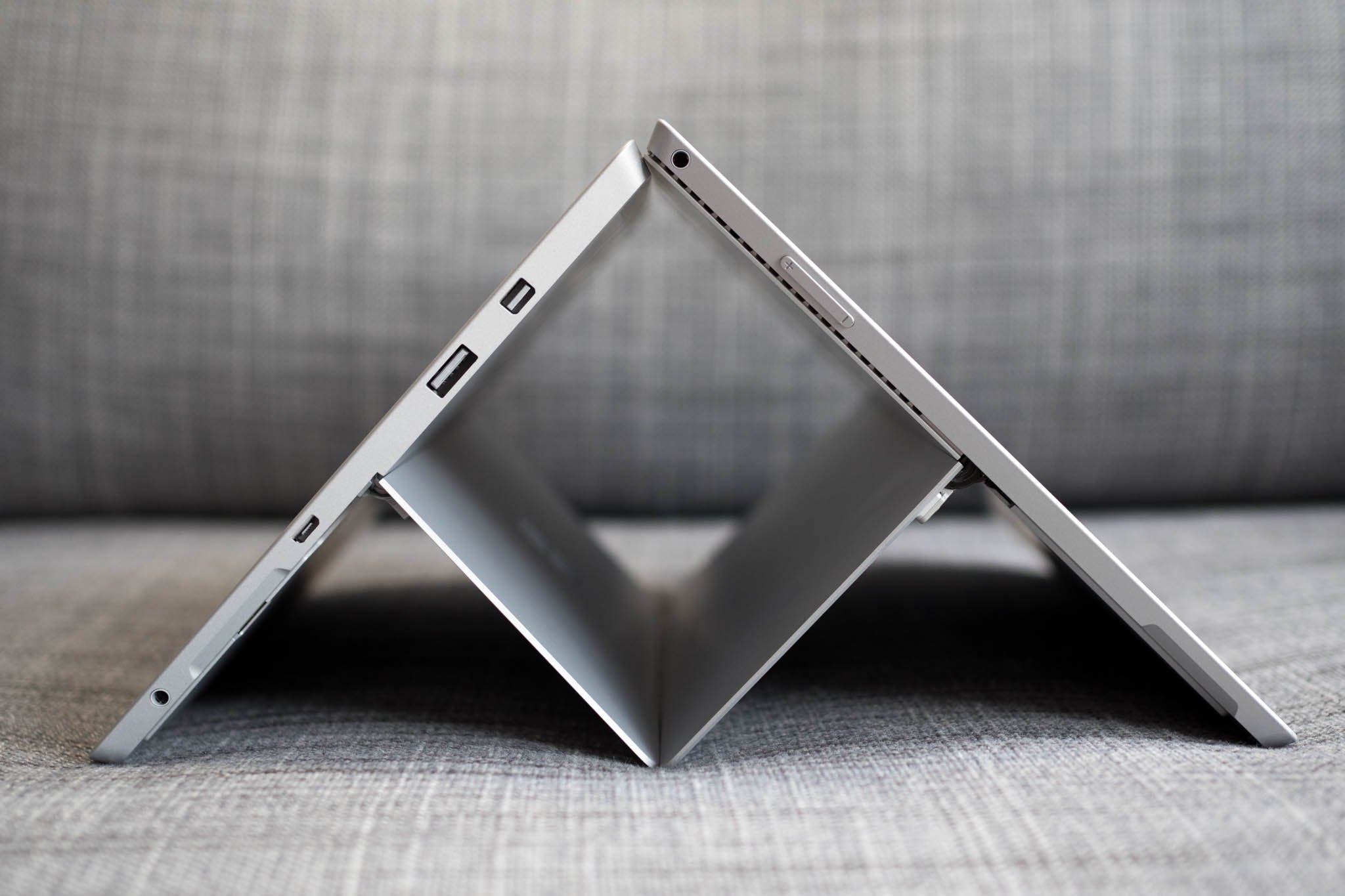
All the latest news, reviews, and guides for Windows and Xbox diehards.
You are now subscribed
Your newsletter sign-up was successful
But in the not-too-distant future I'll be parting company with mine and picking up its smaller, LTE powered sibling; the Surface 3. Partly because, finally, the Surface 3 LTE will be going on sale in the UK very soon.
But apart from that, what would make me go from the Pro to the regular one, especially when I like it so much? Lunacy? Here's why.
That LTE connectivity
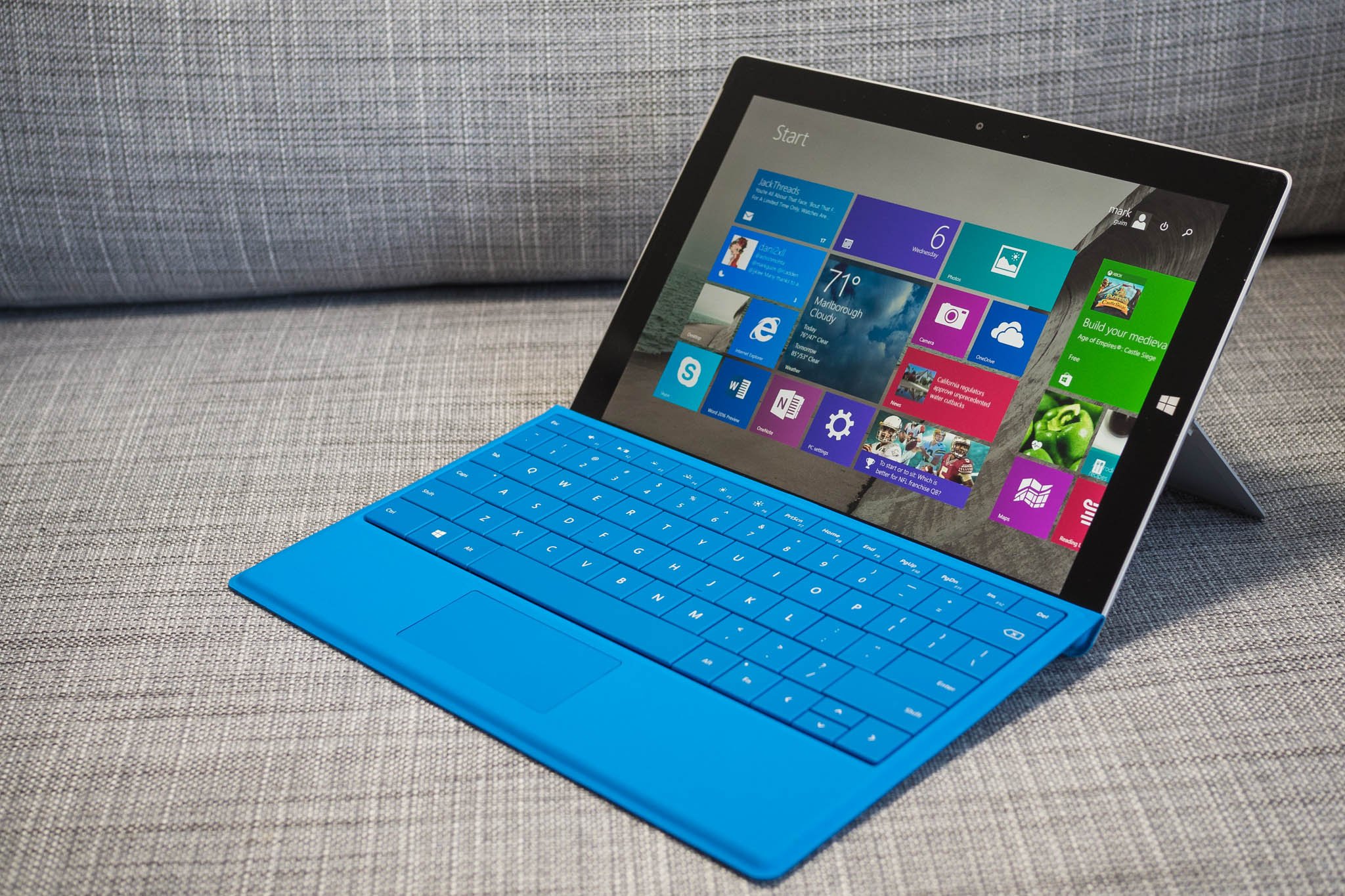
Perhaps the biggest single attraction is the LTE in the Surface 3. I'm fortunate enough to be able to travel about a reasonable amount in both personal and professional capacities, but one of the standard issues is connectivity.
Usually running an LTE hotspot is the way to go since public WiFi often isn't that hot, but that just drains the phone battery or necessitates carrying a charger of some kind.
If there were an LTE Surface Pro 3, this wouldn't even be a discussion. But there isn't, so it is.
Size matters
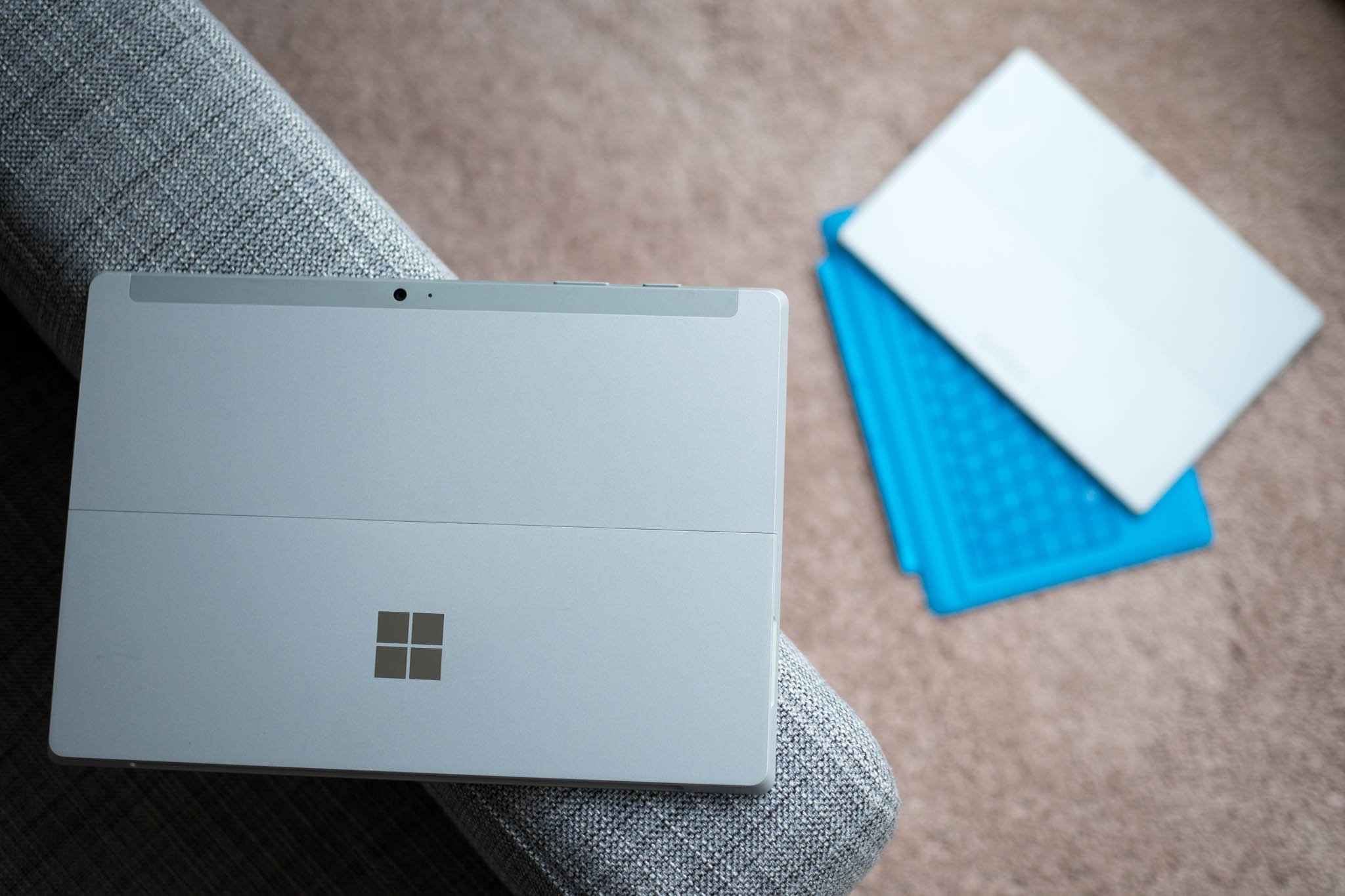
Coupled with the attraction of a built-in LTE connection, the size of the Surface 3 attracts me a lot, too. Since I picked up the Dell XPS 13 as my main laptop, I've been left with it and the Surface Pro 3 as two devices comparable in size.
The Surface 3 has size on its side when it comes to using as a tablet, too. Probably the only criticism I have of the Surface Pro 3 is that I don't feel comfortable using a tablet that big outside of the home. The shrunken down Surface 3 feels much better in this regard.
All the latest news, reviews, and guides for Windows and Xbox diehards.
MicroUSB charging like (almost) everything else
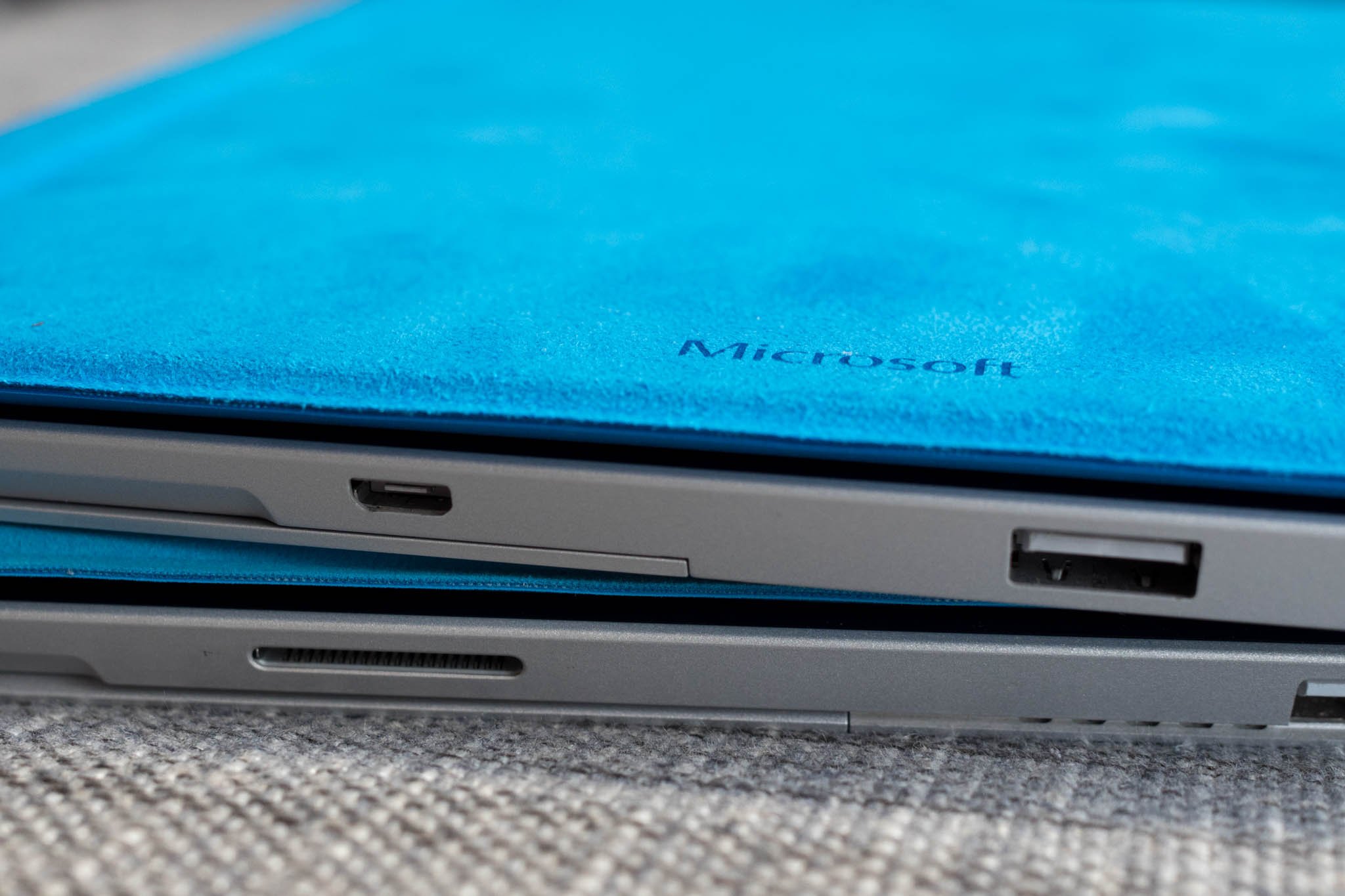
Not just a bonus when travelling but even so in the office. One of the big issues in a job like this is cables. Laptop chargers, monitors, endless phone cables. All smartphones (apart from that one) use microUSB, so these are the most common. I've hundreds of them and a power brick that accepts 5 of them at a time to charge all the things.
It's one less thing under my desk, and it's one less adapter in my bag wherever I go. But better still is that if the battery gets a bit low while somewhere like, say, a big trade show, a regular old battery pack will give it a boost.
Productivity with minimal compromise
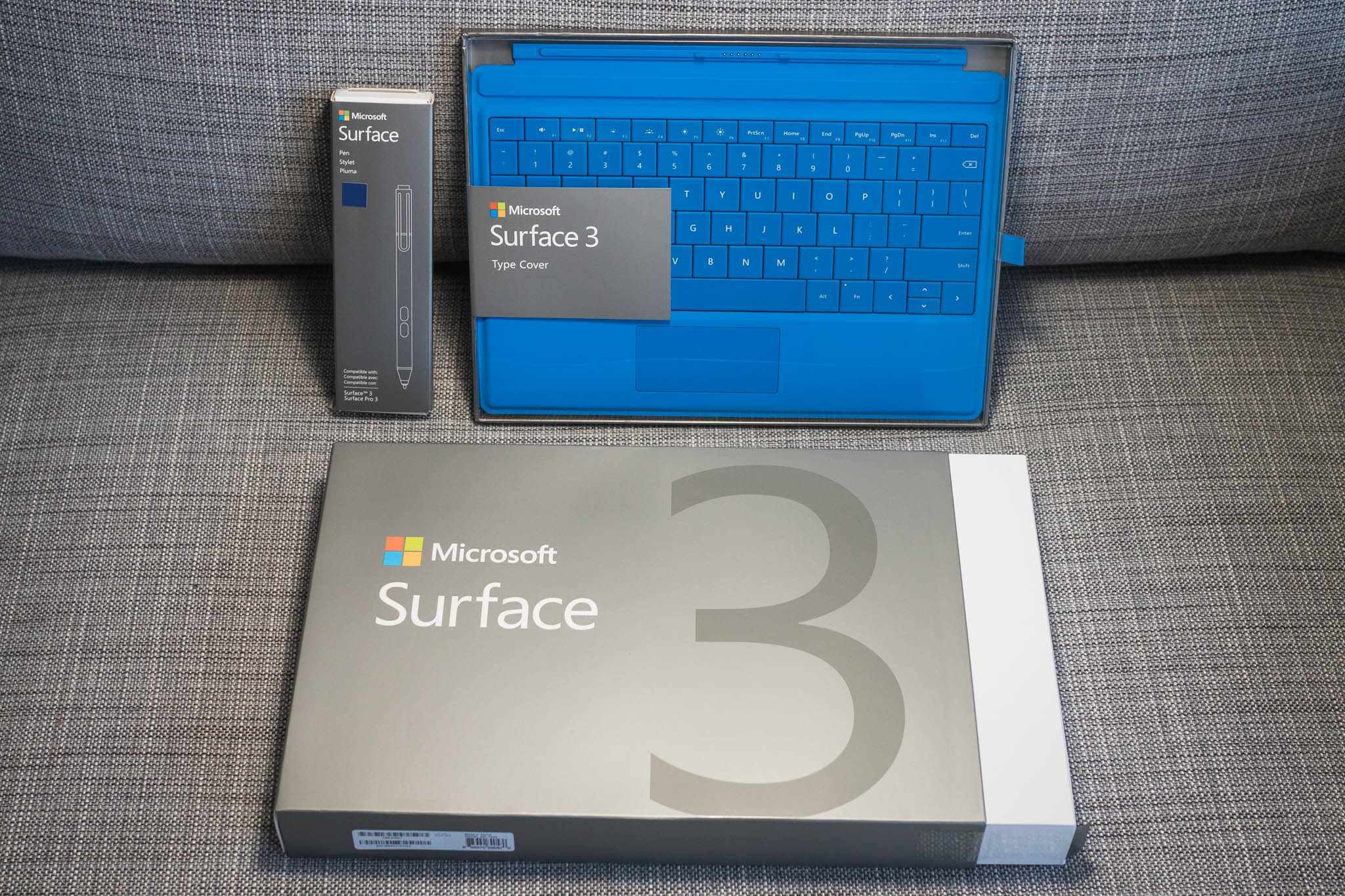
In many regards, the Surface 3 is just a smaller Surface Pro 3. That alone is a reason to like it. The same form factor, same style keyboard cover, full USB port, kickstand, even coming with its own desktop dock to plug into your monitor at home.
Sure, you lose out on raw power with the Cherry Trail CPU compared to the Core i3/i5/i7. But I'm not doing anything heavy with my Surface. Mostly modern apps, a fair bit of writing, the odd bit of light photo editing and a ton of web browsing.
I don't need a Core i5 for that. A smaller, lighter, version will do just fine. I'm perfectly happy compromising on internal power when there's so little compromise everywhere else.
So, that's my take. I don't know exactly when, but I've been thinking about this since the Surface 3 was first announced. I don't want a tablet that can replace my laptop or to be my primary machine. For people that do, the Surface Pro 3 is here for you.
But for someone like me that wants a mobile office with LTE and that same great experience, I'm finding it hard to consider anything else.

Richard Devine is the Managing Editor at Windows Central with over a decade of experience. A former Project Manager and long-term tech addict, he joined Mobile Nations in 2011 and has been found in the past on Android Central as well as Windows Central. Currently, you'll find him steering the site's coverage of all manner of PC hardware and reviews. Find him on Mastodon at mstdn.social/@richdevine

